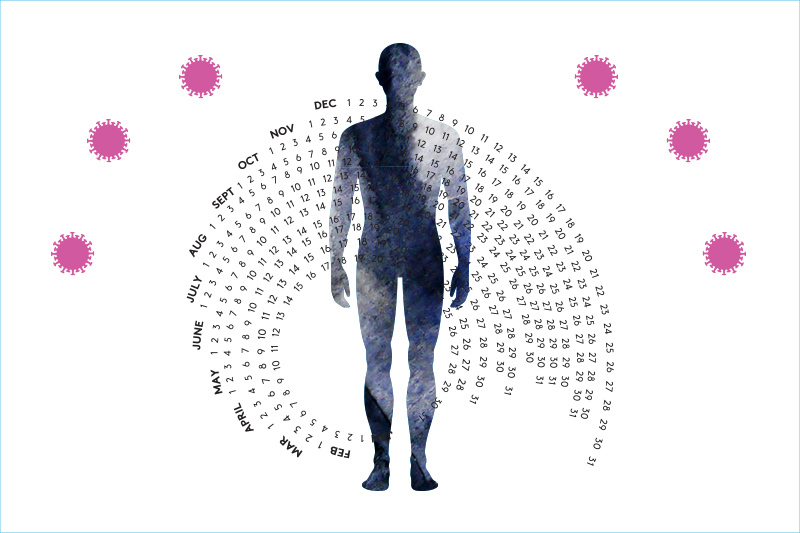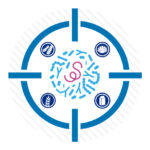Making an IMPACC: Examining immune responses in people hospitalized with COVID-19

We know that the consequences of COVID-19 disease start by infection from a virus. But how does the body react to that viral invasion? To answer that question, Boston Children’s Hospital will play key roles in a nationwide study designed to learn how the immune systems of people hospitalized with COVID-19 respond to the disease over time.
Called IMPACC (IMmunoPhenotyping Assessment in a COVID-19 Cohort), the study will include up to 2,000 patients from 10 to 12 medical centers across the country. The information collected could guide new strategies for diagnosing and treating COVID-19 and possibly identify new targets for drug treatment.

“This effort involves trying to understand how the virus interacts with the body, to find biomarkers that predict outcome from disease, and see how the virus affects people even after they recover,” says Ofer Levy, MD, PhD, director of the Precision Vaccines Program (PVP), and principal investigator for the IMPACC site at Boston Children’s. “It will hopefully provide crucial clues to developing new diagnostics, therapeutics, and vaccines for COVID-19.”
Two hundred thousand samples
The study will include hospitalized patients 18 years and older with a lab-confirmed COVID-19 diagnosis. Each will be enrolled within the first 36 hours of admission to the hospital. Study samples will be collected from nasal swabs, blood, and fluid samples from the trachea at ten different times, from hospital admission to up to one year after hospital discharge. When possible, researchers will also examine lower airway secretions collected from patients requiring a ventilator for breathing support. In total, approximately 200,000 samples will be collected and analyzed.
Coordinating national data
These biosamples will be linked to a rich clinical database, including patient age, sex, medication use, medical history, and details about each patient’s clinical course,” says Al Ozonoff, PhD CPPS, who heads the PVP’s data management core.

Ozonoff will direct the national IMPACC Clinical & Data Coordinating Center (CDCC), which will be located at Boston Children’s. The CDCC will collect, manage, and analyze data from all samples nationwide, under the direction of Ozonoff and CDCC Computing Lead Joann Arce, PhD.
“The information we learn will allow us to study the relationship between the immune system and clinical aspects of the disease,” says Ozonoff. “We believe it will be a powerful way to discover biomarkers, or molecules in the body that may help predict disease severity and even patient outcomes.”
Detailed protein and metabolism studies

The PVP will also serve as the Proteomics and Metabolomics Core (PMC) of the IMPACC study. From a small amount of blood plasma from each patient, the PMC team will measure the proteins and metabolites to track how they change over the course of COVID-19 infection. The PMC will be led by Hanno Steen, PhD, director of the Proteomics Center at Boston Children’s and faculty member of the department of pathology, as well as Naama Kanarek, PhD, a fellow faculty member with expertise in metabolomics.

“We hope this kind of information will provide insights into how the virus influences the blood proteins and metabolites, which are crucial for the regulation and modulation of the immune system and its response to the virus,” says Steen.
For example, the data may shed light on whether antibodies develop at a different rate in people who experience severe symptoms of COVID-19, whether specific antibodies or other immune components are associated with a faster recovery, or whether antibodies are necessary to clear the virus from the body.
In the Boston area, study participants will be enrolled at the Brigham and Women’s Hospital (BWH), under the leadership of Lindsey Baden, MD, MMSc. Their samples will be tested at Boston Children’s.
Learning more about immune function during COVID-19
The PVP will also conduct specialized studies measuring the immediate immune function of those with COVID-19 as well as how their immune responses adapt during and after the infection clears. These studies will be led by Kinga Smolen, PhD, of the PVP using the samples from BWH.
“Applying specialized immunologic assays to blood plasma and white blood cells will open a window into how the immune response corresponds to COVID-19 outcomes,” says Smolen. “Such information can then be used to develop immune-based approaches to prevent and treat COVID-19.”
IMPACC was developed through the Human Immunology Project Consortium (HIPC), a research consortium funded by the National Institute of Allergy and Infectious Diseases (NIAID) to learn more about the human body’s immune response to infections. The PVP is one of ten HIPC centers nationwide.
Learn more about Boston Children’s response to COVID-19 and coronavirus research at the hospital.
Related Posts :
-

A surprising link between Crohn’s disease and the Epstein-Barr virus
Crohn’s disease, a debilitating inflammatory bowel disease, has many known contributing factors, including bacterial changes in the microbiome that ...
-

Could peripheral neuropathy be stopped before it starts?
An increase in high-fat, high-fructose foods in people’s diets has contributed to a dramatic increase in type 2 diabetes. This, ...
-

Could we cure or prevent food allergy by targeting an intestinal protein?
When is food simply nourishing and enjoyable, and when does it provoke an allergic reaction? The answer appears to lie ...
-

Model enables study of age-specific responses to COVID mRNA vaccines in a dish
mRNA vaccines clearly saved lives during the COVID-19 pandemic, but several studies suggest that older people had a somewhat reduced ...





